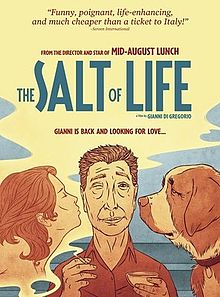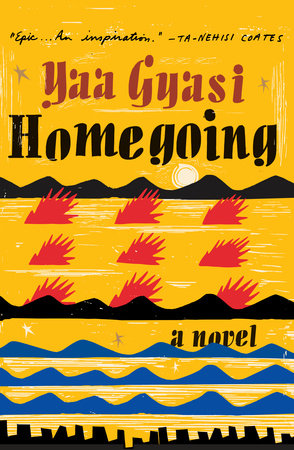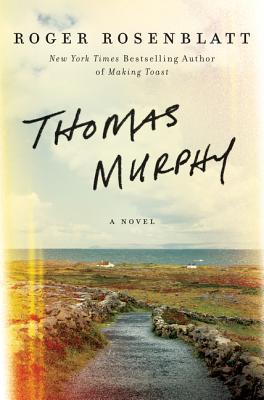From Rome to the Replacements: June Staff Picks
Film

Gabrielle’s Pick
The Salt of Life, directed by Gianni Di Gregorio
What happens when an aging Italian filmmaker realizes that women no longer look at him with desire? He makes a film about the experience, of course.
Gianni e Le Donne, or The Salt of Life, is a semi-autobiographical film that follows the film’s hero, played by the filmmaker himself, in his hapless (yet always polite) attempts at romance and flirtation. Charming, poignant, slightly melancholy, and funny in a poker-faced way, the movie is also a feast for the eyes with its lovely scenes of Rome.
Nonfiction
Elizabeth’s Pick
Sister Outsider was published in June of 1984, and more than thirty years on, Audre Lorde’s essays and speeches around racism, sexism, homophobia, and on many other themes—women’s relationships, anger vs hatred, communication, responsibility, love—remain as powerful and empowering as ever.
From The Transformation of Silence into Language and Action
“I have come to believe over and over again that what is most important to me must be spoken, made verbal and shared, even at the risk of having it bruised or misunderstood. That the speaking profits me, beyond any other effect…
And of course I am afraid, because the transformation of silence into language and action is an act of self-revelation, and that always seems fraught with danger…
In the cause of silence, each of us draws the face of her own fear- fear of contempt, of censure, or some judgment, or recognition, of challenge, of annihilation. But most of all, I think, we fear the visibility without which we cannot truly live.
…For we have been socialized to respect fear more than our own needs for language and definition…
The fact that we are here and that I speak these words is an attempt to break that silence and bridge some of those differences between us, for it is not difference which immobilizes us, but silence. And there are so many silences to be broken.”
Lorde died of cancer in 1992. Re-reading her work this June, I wonder what she might write about today…reflecting and calling as strongly as ever for individuals and communities to grow, break silence, recognize, and hear one another?
Fiction
Brandie’s Pick
 Homegoing, by Yaa Gyasi
Homegoing, by Yaa Gyasi
“We believe the one who has the power. He is the one who gets to write the story. So, when you study history, you must always ask yourself, whose story am I missing? Whose voice was suppressed so that this voice could come forth?”
I don’t know the last time I read something that I loved as much as Homegoing by Yaa Gyasi. This happens to be her debut novel, which blows me away. If you love family sagas that make the family trees in the opening pages necessary to refer to, this is the book for you.
Gyasi, who was born in Ghana and immigrated to the United States with her family at the age of 2, said she was initially inspired to write this book after she visited the Cape Coast Castle. In Homegoing she introduces us to Effia and Esi, half-sisters born in 18th-century West Africa. While Effia becomes the bride of a British slave-trader and goes to live in the Cape Coast Castle, Esi become a slave living in the dungeons of the castle awaiting the trip to the New World. Homegoing then follows generations of their descendants, free and enslaved, on both sides of the ocean. Each chapter follows the story of a different character, moving forward in time from one generation to the next. From these stories of Effia and Esi’s descendants grow “two branches split from the same tree.”
Extraordinary for its beautiful language, Homegoing is a portrait of what it means to belong, both to a nation and to a family, and the forces that shape those nations and families. Gyasi packs so much into each of the short chapters and she accomplishes it all with the astounding efficiency of just 300 pages. Trust me, you won’t be able to put this book down.
“Weakness is treating someone as though they belong to you. Strength is knowing that everyone belongs to themselves.”
Eileen’s Pick
 Thomas Murphy, by Roger Rosenblatt
Thomas Murphy, by Roger Rosenblatt
When I read Roger Rosenblatt’s work of fiction Thomas Murphy, pre-Orlando but post- so many other, earlier mankind-vs-itself horrors, this quote grabbed me. It is posted desk-side where I can read it anytime my eyes wander from workaday whatevers:
“That’s all civil rights means anyway—returning to a state of natural dignity. The movements are called revolutionary, but they are really restorative.”
The italics are mine because important things assume italic formation in my head, but the bold-ness of the statement (if not of the typeface) comes from the main character, Thomas Murphy himself.
Thomas is a character, all right: a poet whose memory is likely failing (he awaits clinical proof), possessor of a meandering mode of expression (oh! how I love a fellow meanderer!), blessed and cursed with a cast of acquaintances, living and dead, that makes for an extraordinary ordinary life. For a fictional fella, he makes more sense than he ought.
Perhaps it is only in fiction that a statement of the obvious, like his regarding civil rights, can hope to stand without assault. Perhaps it is up to real folk like us to take his assertion into the world and see the sense it makes.
Fiction is a vehicle for truth. Nonfiction can mislead. Tragedies are tragic. Love is love. We are what we are. We all yearn for the restoration of our natural dignity.
Music
Hazel’s Picks
The Replacements’ golden age: Let It Be (1984), Tim (1985), Pleased to Meet Me (1987) [Recommended if you: are 15-25, have ever been 15-25, are already mourning the fact that we are on the wrong side of the summer solstice]
Imagine that Peter Pan wakes up in Neverland one day feeling uncertain about his signature stance on adulthood, and the only way he can process this identity crisis is to make three jangly punk records. I go through regular phases where the only albums I want to listen to are these, preferably while driving, windows down. Bonus points for sunglasses that make me feel tough, but like, in a sensitive way. These smart and bittersweet power pop classics are available to stream with your library card via Hoopla along with the rest of the Replacements’ catalogue. (If you prefer CDs, Let It Be and Pleased to Meet Me can be found in PPL’s collection, but you’ll have to go through ILL to get your hands on Tim, my personal favorite).
As always, thanks for reading.
posted: , by Elizabethtags: Library Collections | Recommended Reads | Adults | Seniors | Art & Culture



